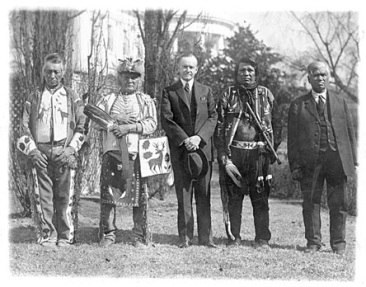
The Indigenous experience has long been absent from colonial histories, which either dismiss or rationalize the existence of and fallout from European imperialism. With An Indigenous Peoples’ History of the United States, activist and historian Roxanne Dunbar-Ortiz examines U.S. settler-colonial framework and gives insight into the modern reality of Indigenous peoples’ experience. In roughly 230 pages, spanning more than four hundred years, the book challenges readers to rethink the national narrative of manifest destiny and to ponder how society would be transformed if the reality of U.S. history were to be acknowledged on a wider scale.

Dr. Tanis C. Thorne’s El Capitan simultaneously details the advent of the Capitan Grande Reservation while speaking on the broader issue of Southern California Indian agency in overcoming Spanish, Mexican, and American colonization. If historical narratives are comprised of evidence fragments, El Capitan’s narrative is presented in the form of detailed maps, photographic essays, and compelling accounts from individuals, families, villages, reservations, and government officials. El Capitan is a brief, yet well-researched and accessible reconstruction of what happened and why at Capitan Grande.

Published by the American Indian Alaska Native Tourism Association (AIANTA), in partnership with the National Park Service, and written, photographed, and designed by Lisa Hicks Snell (Cherokee), American Indians & Route 66 offers an untold perspective of America’s most iconic two-lane highway. The nearly 2,400-mile stretch of Americana from Chicago to the Pacific Coast (or the other way around depending on the direction one heads) was an officially commissioned highway from 1926 to 1985 and guided travelers through the lands of over 25 Native nations. Also known as America’s Highway, Will Rogers Highway, and the Mother Road, U.S. Route 66 symbolizes American innovation and freedom to some and rapacious capitalism and cultural misappropriation to others.
The book is available free and online at: http://www.americanindiansandroute66.com/

Edited by Jeff Berglund, Jan Johnson, and Kimberli Lee, Indigenous Pop: Native American Music from Jazz to Hip-Hop aims not only to discuss the historical aspect of American popular music gatekeepers, but also to contribute to the gap in scholarship on contemporary American Indian music. While not a comprehensive source for biographical detail on Native musicians, Indigenous Pop successfully accomplishes its goal of noting not only the contributions and influence of well-known and obscure Native artists in popular music, but also illustrates with each essay the importance of song in the political and apolitical lives of Indigenous people, and explores the notion that musical oral traditions are both adaptive and transformative.
